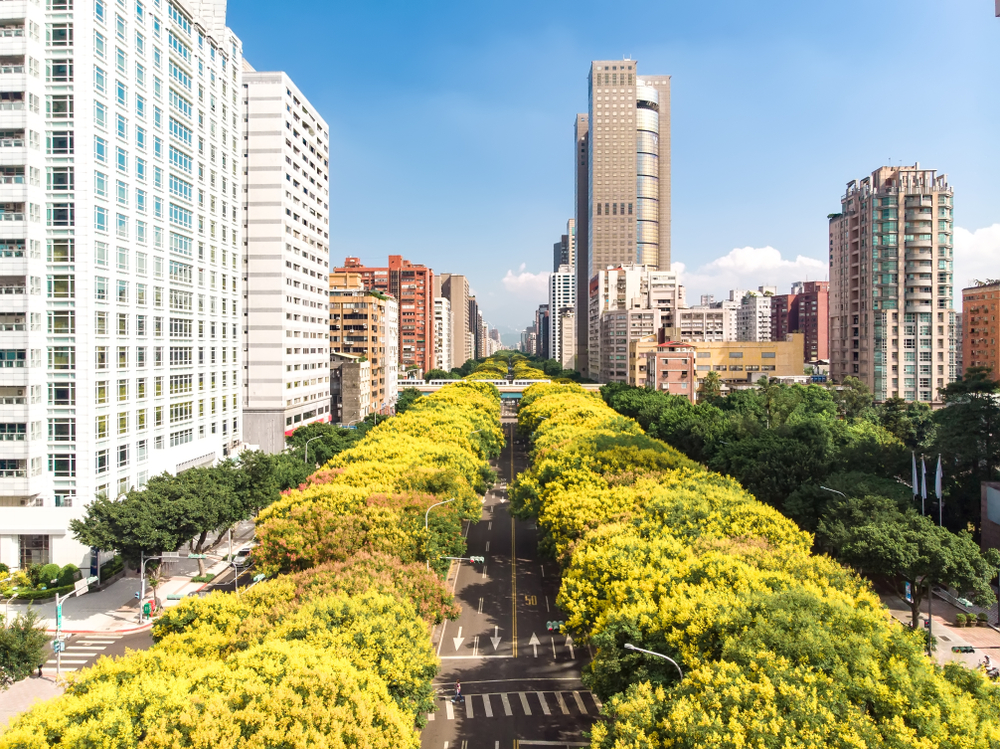Taipei prime property prices go up 18.9%, placing 6th in global ranking
The city placed seventh in Q3 2021

In November 2021 that Knight Frank’s Prime Global Cities Index revealed that the price of prime residential properties in Taipei increased by 18.9 percent in Q3, putting the city in seventh place globally.
In Asia, only Seoul and Shanghai were ranked higher than Taipei, at second and third, respectively.
Overall, the index increased by 9.5 percent in Q3, up from 8.3 percent in Q2, with prime property values rising in 85 percent of cities worldwide.
According to the report, prices grew year over year in 76 percent of cities in Q2, with 16 of them reporting hikes of more than 10 percent.
In Q4 2021, however, Taipei rose to sixth, with Seoul and Taipei dropping to fourth and tenth, respectively, according to The Taipei Times.
Knight Frank Taiwan researcher Andy Huang said that presale projects were mostly responsible for the transactions in Q4 and that credit controls and unfavorable policy measures that impose punitive income taxes on contract transfers had little to do with it.
He added that most of the transactions were for an upcoming luxury residential complex on Dunhua N Road and a landmark presale project in Nangang District, where housing prices were almost up to par with apartment prices.
The rises in luxury property prices were most likely due to increased inflationary pressures, as numerous surveys have shown that the Taiwanese population preferred real estate to alternative investments as inflation protection.
More: Taiwan’s economy slated to grow 4.42% this year
Experts said that last month, housing transactions in six special municipalities — Taipei, New Taipei City, Taoyuan, Taichung, Tainan, and Kaohsiung — plunged 34.9 percent from January, with 15,646 deals.
According to Evertrust Rehouse Co, these were the outcomes following the week-long Lunar New Year break, which was spent primarily with family and on recreational activities.
“Although Taiwan’s economic barometers remained strong, people turned conservative ahead of interest rate hikes by the US Federal Reserve to curb inflation,” Evertrust researcher Chen Chin-ping said.
After Russia invaded Ukraine, inflationary pressures increased, casting a pall over oil and grain supplies, as Russia is a significant exporter of both.
The Property Report editors wrote this article. For more information, email: [email protected].
Recommended
Why everyone is moving to Selangor and Johor: Malaysia’s real estate comeback
Malaysia’s upturn in fortunes is especially prevalent in secondary destinations such as Selangor and Johor
Penang’s silicon boom: How the US-China tech war is supercharging local real estate
Penang’s booming semiconductor industry has created ripples within the local real estate sector
New leader, new opportunities: How Hun Manet is shaking up Cambodia’s real estate game
Hun Manet is overseeing decent economic growth and widening access to the country’s real estate market for foreigners
Singapore embraces inclusive housing reforms amid resilient demand
The Lion City’s regulatory strength continues to exert appeal for international investors








